Today, it’s not enough for a brand to simply have a social network strategy. To be competitive, they have to use the platform in new and innovative ways. But they also need to remain focused on retaining followers.
For brands, retention is especially crucial because followers are often direct consumers. For example, on Twitter, 72% of followers of a brand are more likely to purchase a product from them.
So why do people start and stop following brands? BuzzStream and Fractl conducted a survey with more than 900 respondents to better understand why people unfollow brands in social networks.
How can you grow your following on social media?
If someone likes a brand, there’s a good chance they’ll consider following it via social media. Strategists can have a big impact with special promotions and offers that can only be seen by followers. Just don’t expect your new followers to jump into a conversation ― only 4% of our respondents said that they follow brands on social media to give brand feedback.
- 16% of the respondents said they will follow a brand because they like the brand
- 15% said they follow brands to be notified of special offers / promotions
- 12% said they follow brands to learn about new products and services
There are 30 million small businesses with pages on Facebook, and yet according to our survey, a majority of people only follow between one and four brands on social media. With so many brands competing for attention, it’s incredibly important they retain existing followers.
- 50% follow one to four brands
- 26% follow five to nine brands
- 22% follow 10 or more brands
- 3% follow zero brands
Facebook continues to be the most popular network for brands. We asked our survey takers, “What is your preferred social network to follow brands?”
- 38% of the responses indicated Facebook is the most preferred social network to follow brands
- 19% said Twitter is the most preferred social network to follow brands
- 15% said YouTube is the most preferred social network to follow brands
- Less than 2% said SlideShare, Vimeo, and Vine are the most preferred social networks to follow brands
How can you retain your followers on social media?
Getting people to stick around is more about avoiding activities that tend to turn off followers. Specifically, 45% of our respondents said that they will unfollow a brand on social media because of too much self-promotion (e.g., when a company ignores its audience and constantly promotes its brand). Another 34% said they will unfollow a brand on social media if it uses automated messaging (e.g., when you follow a brand and automatically receive a message saying “Thanks for following me!”).
People tend to have certain expectations when they follow a brand. For example, about a quarter of our respondents expect a response within an hour if they leave a comment on a brand’s Facebook or Twitter page. But 24% of our respondents expect a response to a comment they made directed to a brand they’re following on Facebook within 1 day or longer; 19% said the same thing, but for Twitter.
- 16% expect a response within 12 to 24 hours on Facebook; 13% on Twitter
- 13% expect a response within 1 to 2 hours on Facebook; 14% on Twitter
- 12% expect a response within 30 minutes to 1 hour on Facebook; 14% on Twitter
Perhaps brand perception is more important than a brand’s social media activities. In fact, 48% of the respondents that took our survey said it is likely that they would immediately unfollow a brand on social media if it garnered press for poor customer service. However, we gave our respondents five different social media blunders as examples of poor customer service and in three of the five examples, respondents told us that if the blunder did not affect them personally, they would not take action. A majority of the responses indicated that our respondents would not unfollow a brand because of these particular social media blunders.
- Customer service turned into a nightmare for US Airways when the company’s social media coordinator accidentally posted an X-rated picture. The inappropriate content was unexpected for their Twitter followers and resulted in a backlash.
- In an attempt to connect a current event like Hurricane Sandy to its marketing message, Urban Outfitters posted a free shipping offer on Twitter. The company’s followers responded that the offer was insensitive.
- When American Airlines announced its merger with US Air, it set up its Twitter account to automatically respond to any tweets in a positive manner. But when someone sent the company a derogatory tweet and the airline responded with a cheerful response, followers began thinking the airline was not genuine in its responses.
After a poor customer support experience, brands can use their social media channels to defuse the situation and engage with their current customers. Furthermore, they can create and post content that acknowledges past blunders and describes steps they took to remediate the outcome.
But how frequently should brands be posting content via social media? Posting too frequently or infrequently could lead to an exodus of followers. In fact, one of the more important social media activities people expect is a consistent frequency of posts. Generally, on all of the social networks people would prefer if brands post between two to five times per day. Brands that post content more than six times a day risk losing followers.
- On Facebook, 68% of respondents said that they would want a brand to post between 1-2 times per day on Facebook, while 19% want them to post 3-5 times per day
- On LinkedIn, 63% want brands to post 1-2 times per day and 24% prefer 3-5 times per day
- On LinkedIn, 72% want brands to post 1-2 times per day and 13% prefer 3-5 times per day
Lastly, 26% of our survey-takers’ responses indicated that when following a brand, what matters to them most is that it fits their interests.
- 25% said what matters to them most is that the brand offers high-quality products
- 21% said what matters to them most is that it fits their personality
- 17% said what matters to them most is that it is socially responsible
- 12% said what matters to them most is that it can be recommended to friends and family

 End-to-end outreach workflow
End-to-end outreach workflow



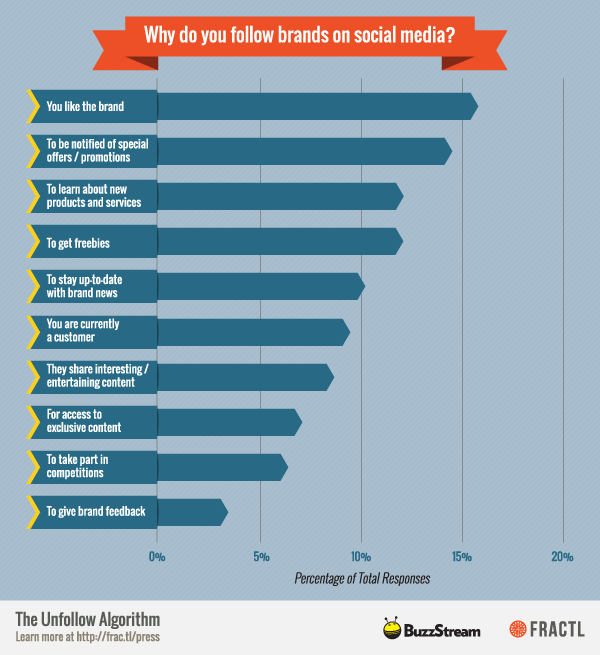
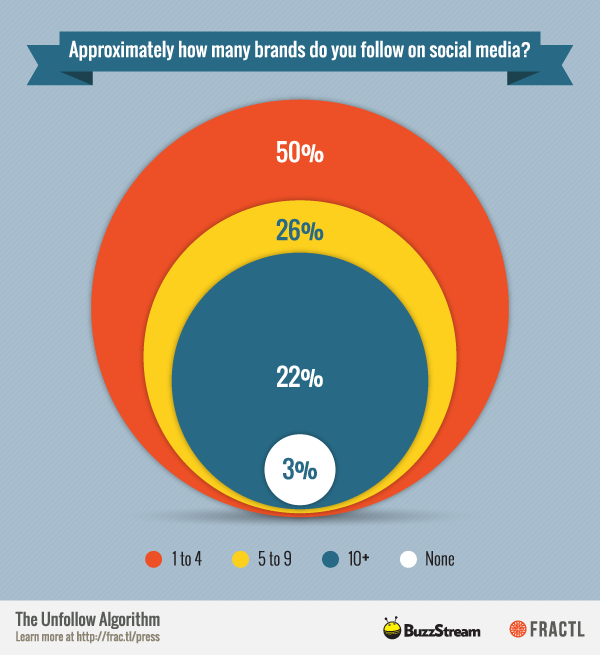
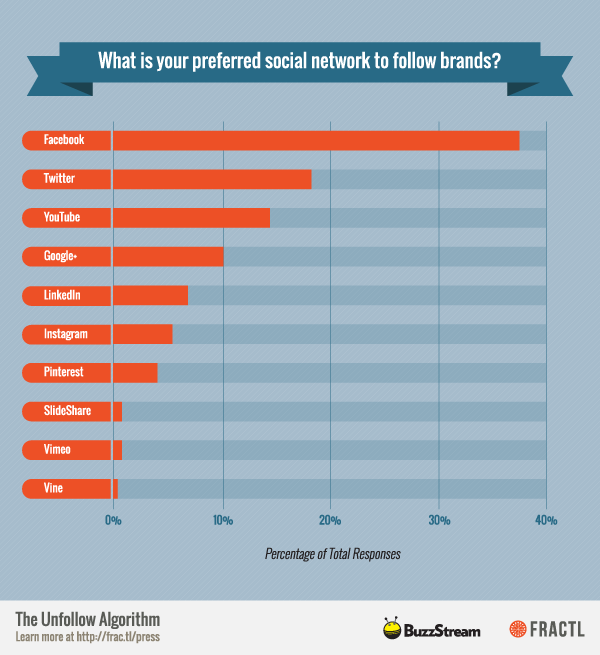
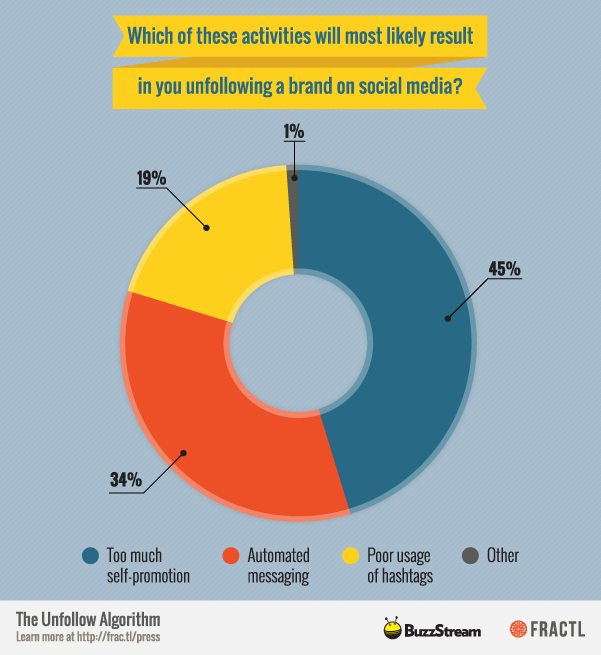
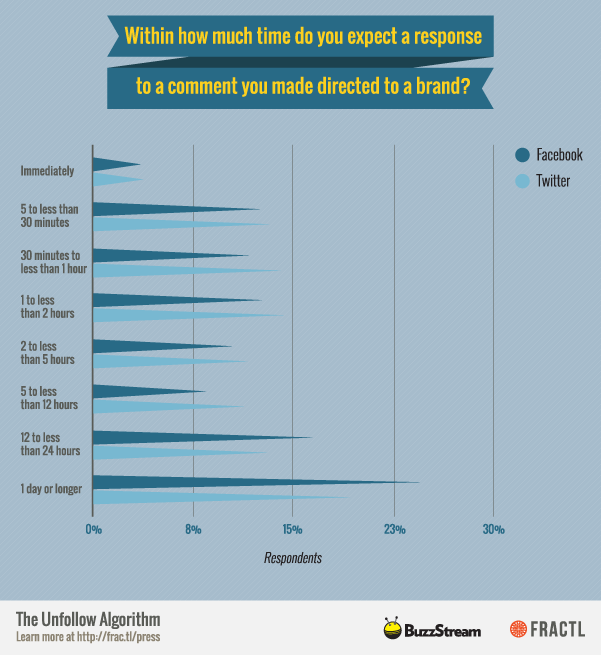
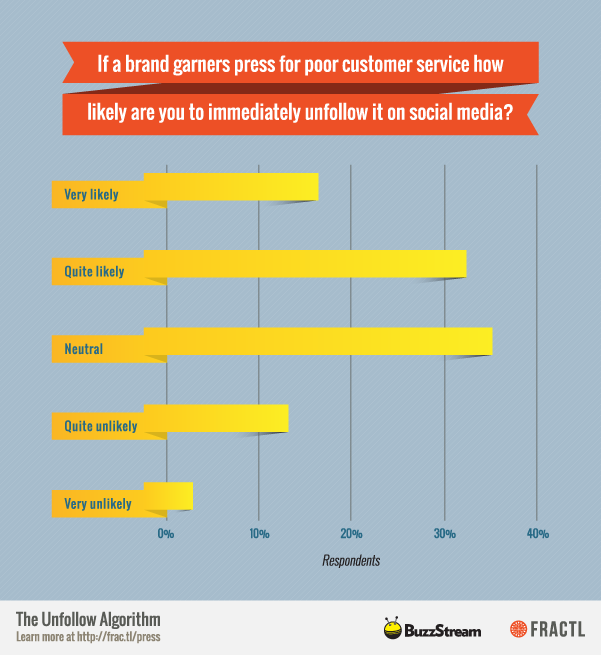
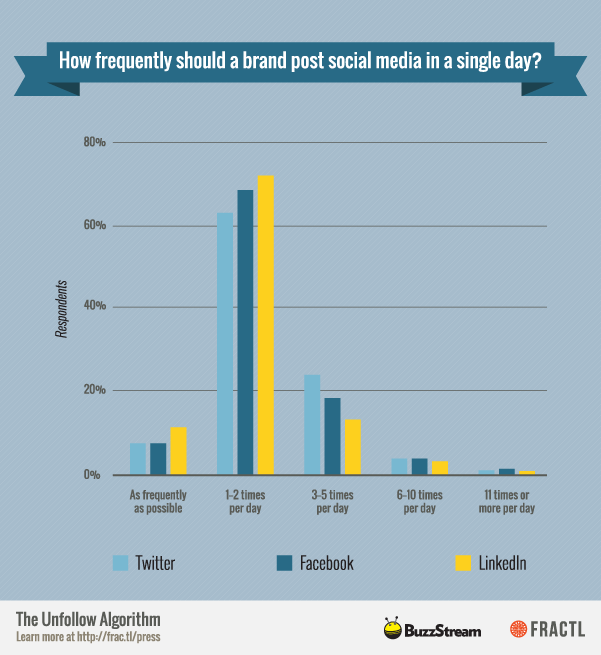
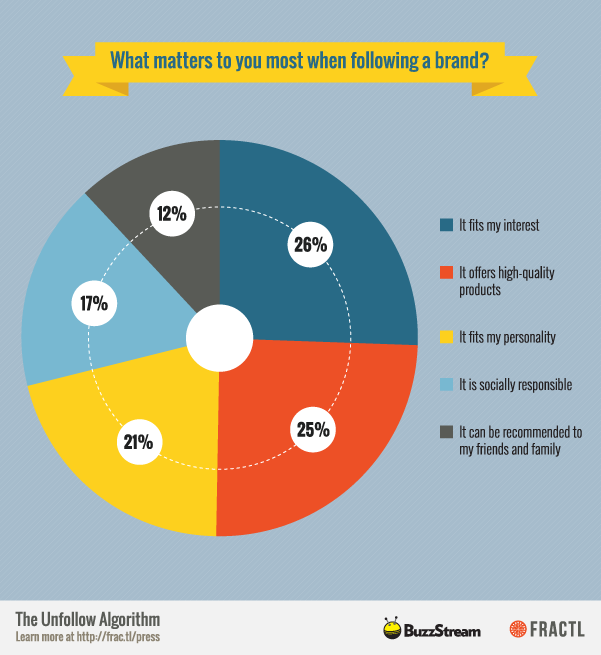
 Check out the BuzzStream Podcast
Check out the BuzzStream Podcast





